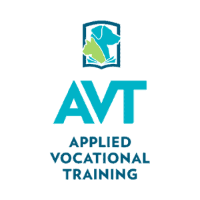
This role has a moderate level of AI exposure. AI can enhance efficiency for some tasks, but this job still relies on human skills and decision-making.
Explore all careersA Wildlife Carer cares for injured native animals and orphans until they can be released back into the wild, requiring flexibility and patience.
Get qualified to work as a Wildlife Carer with a course recognised across Australia. Speak to a training provider to learn more.













In Australia, a full time Wildlife Carer generally earns $1,200 per week ($62,400 annual salary) before tax. This is a median figure for full-time employees and should be considered a guide only. As you gain more experience you can expect a potentially higher salary than people who are new to the industry.
 Courses.com.au Team
Courses.com.au Team
The number of people working in this industry has remained stable in recent years. There are currently 16,500 people employed as an animal attendant in Australia and many of them work as Wildlife Carers. Wildlife Carers may find work across all regions of Australia.
Source: Australian Government Labour Market Insights
 Courses.com.au Team
Courses.com.au Team
If you’re interested in becoming a Wildlife Carer, consider enrolling in a Certificate III in Captive Animals. This course covers a range of topics including rescuing animals, applying first aid, rehabilitating native wildlife and caring for very young animals.
 Courses.com.au Team
Courses.com.au Team
Browse occupations related to Wildlife Carer



Embarking on a career as a Wildlife Carer can be a fulfilling choice, especially for those who have a passion for animal welfare and conservation. Individuals in the Australian Capital Territory (ACT) can explore a variety of Wildlife Carer courses in Australian Capital Territory that equip students with the necessary skills to care for injured and orphaned wildlife. These courses not only cover essential knowledge about native animal species but also provide practical experience vital for ensuring the survival and rehabilitation of wildlife in the local ecosystem.
Students pursuing Wildlife Carer courses in ACT may find themselves drawn to related job roles such as Pet Groomer, Animal Attendant, or even ambitious roles like Zoologist. Whether your interests lie in grooming, caring for animals in shelters, or conducting research in wildlife, there are plentiful opportunities related to wildlife care. Those completing courses in this field are often well-prepared to transition into these exciting roles.
The Australian Capital Territory is not only home to a vibrant community of wildlife but also offers a robust network of training providers. These RTOs deliver comprehensive Animal Welfare and Veterinary courses that complement Wildlife Carer training, creating a solid foundation for individuals looking to pursue further career options. Alongside Wildlife Carer courses in the ACT, learners can also consider pathways into fields such as Animal Care, broadening their prospects even further in the realm of animal conservation and welfare.
Your journey towards becoming a Wildlife Carer in Australian Capital Territory is just the beginning. With various job roles available, including Kennel Hand, Ecologist, and Zoo Keeper, there are numerous opportunities to utilise the skills gained from your training. Each course not only prepares you for the rewarding task of caring for Australia's unique wildlife but also equips you with versatile skills applicable in various animal-related sectors across the region. Take the first step today in your journey by exploring the available Wildlife Carer courses in the Australian Capital Territory!